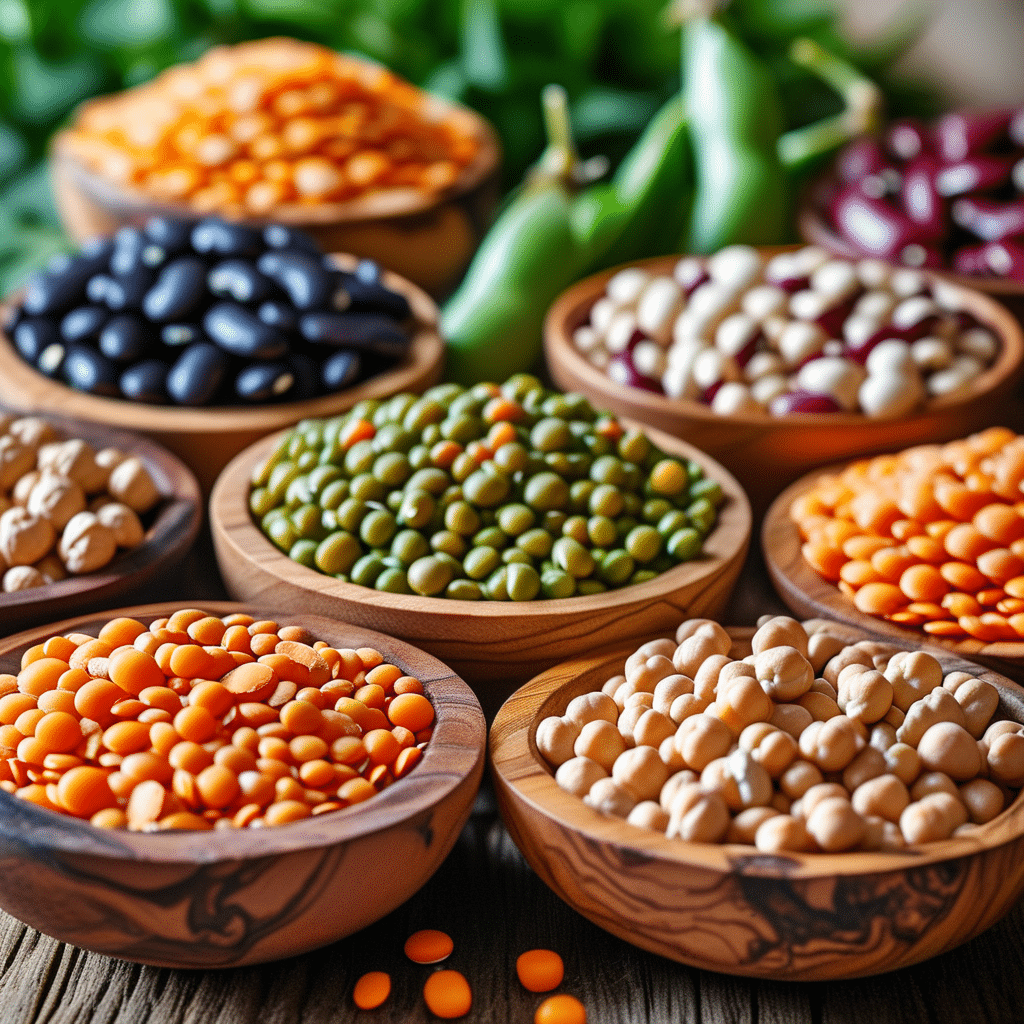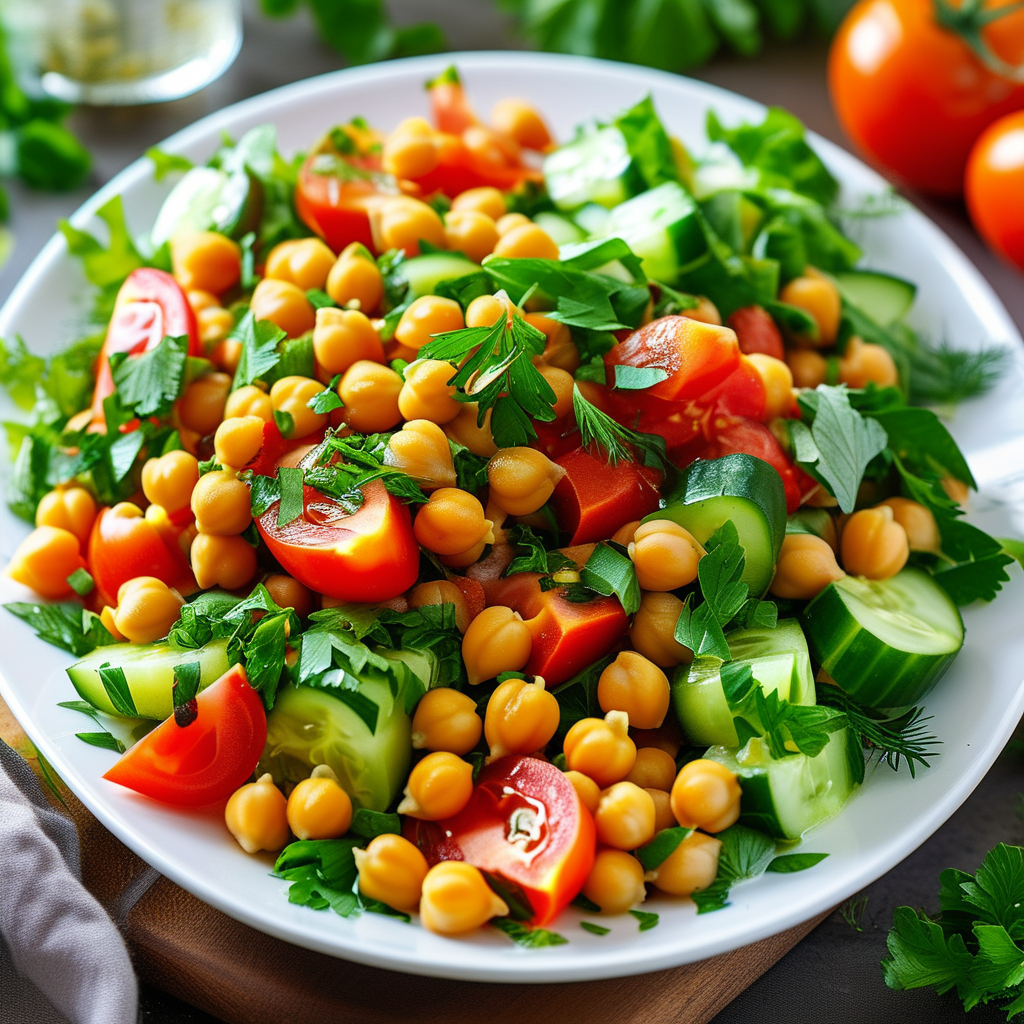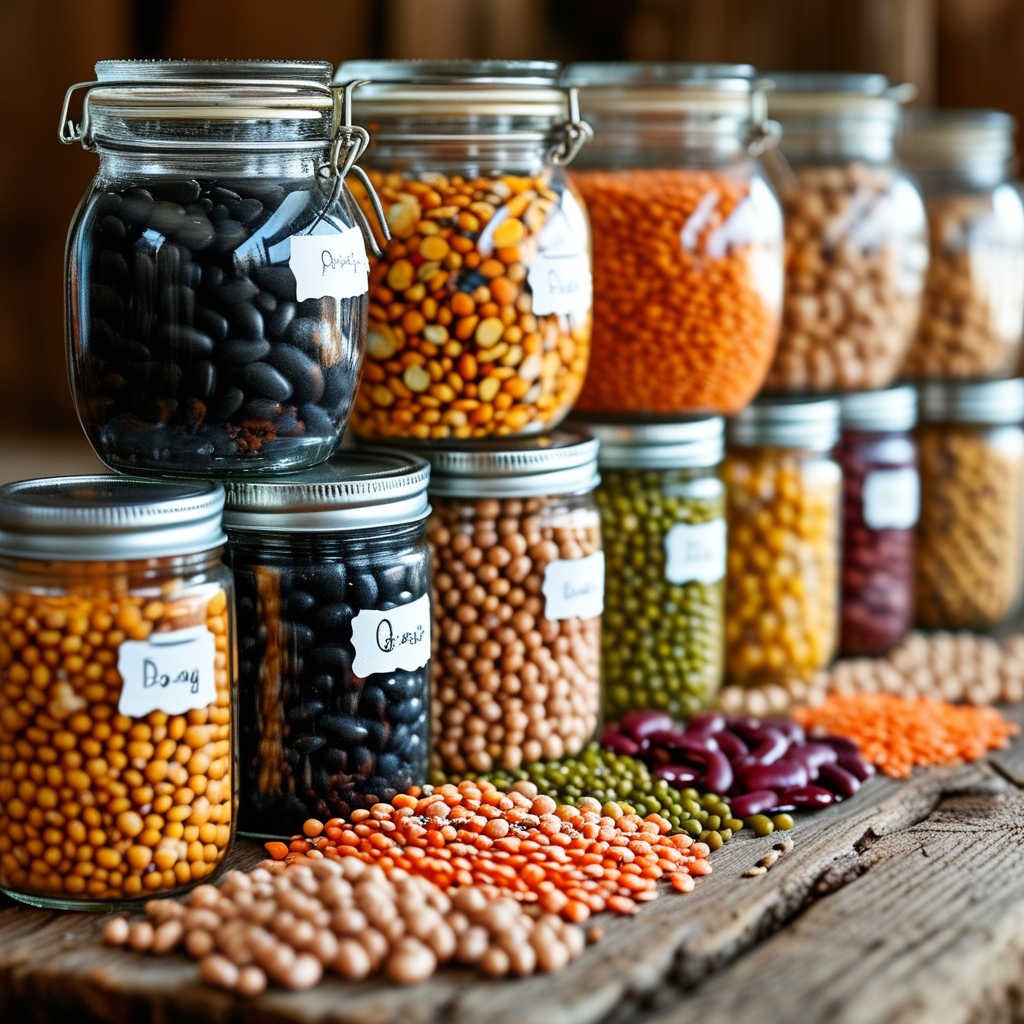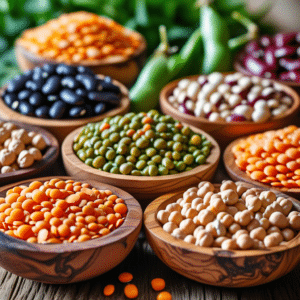
Fuel Your Body, Delight Your Palate: Exploring Healthy Legume Recipes
In the vibrant tapestry of modern cuisine, legumes have risen from humble pantry staples to true culinary superstars. These nutritional powerhouses are gracing plates in kitchens around the world, celebrated for their incredible versatility, affordability, and profound health benefits. But what exactly counts as a legume? Simply put, they are the fruits or seeds of plants in the Fabaceae family, encompassing a wide variety of beans, lentils, peas, and chickpeas. If you’re looking to infuse your diet with more goodness, diving into the world of healthy legume recipes is one of the smartest moves you can make.
This comprehensive guide will unpack everything you need to know about these fantastic foods. We’ll explore why they’re considered a superfood, demystify the art of cooking them perfectly, and share an array of delicious, easy-to-make recipes that will make legumes a beloved part of your meal rotation. Get ready to transform your cooking with the magic of beans, lentils, and peas!
Why Legumes Are a Superfood
Legumes aren’t just trending; they’ve earned their superfood status through an impressive nutritional profile that supports overall well-being. Incorporating them into your diet is a simple yet effective way to boost your health.

Nutritional Powerhouse
One of the most compelling reasons to embrace legumes is their incredible nutrient density. They are truly a powerhouse, packing essential macros and micros into every serving:
- High Protein Content: Legumes are phenomenal vegetarian protein sources, vital for muscle repair, growth, and satiety. For those seeking plant-based options, a cup of cooked lentils can provide around 18 grams of protein, while black beans offer about 15 grams.
- Fiber-Rich Goodness: Perhaps their most celebrated quality, legumes are loaded with both soluble and insoluble fiber. This makes them excellent for digestive health, promoting regularity, and helping you feel fuller for longer, which is key for managing appetite. They are a cornerstone of high fiber dinner ideas.
- Essential Micronutrients: Beyond protein and fiber, legumes deliver a treasure trove of vital vitamins and minerals. They are excellent sources of iron (crucial for energy), folate (important for cell function), potassium (for blood pressure), and magnesium (for muscle and nerve function). For example, kidney bean nutrition is particularly notable for its high levels of iron and folate.
Health Benefits
Regular consumption of legumes has been linked to a host of significant health advantages, making them a cornerstone of any balanced diet.
- Heart Health: The soluble fiber in legumes plays a critical role in lowering LDL (“bad”) cholesterol levels. Their potassium content also helps regulate blood pressure, contributing to a healthier cardiovascular system.
- Blood Sugar Control: Legumes have a remarkably low glycemic index (GI), meaning they cause a slower, more gradual rise in blood sugar compared to many other carbohydrate sources. This makes them an ideal food for managing blood sugar levels, particularly beneficial for individuals with diabetes.
- Weight Management: Thanks to their high fiber and protein content, legumes are incredibly filling. Including them in meals can help reduce overall calorie intake by promoting satiety, making them a valuable ally in weight management strategies.
How to Cook Legumes Perfectly
While their health benefits are undeniable, many people are intimidated by cooking legumes. Fear not! With a few simple techniques and modern tools, you’ll be a legume master in no time.

Dried vs. Canned
- Canned Legumes: Offer unparalleled convenience. They’re pre-cooked and ready to use after a quick rinse. They’re perfect for spontaneous cooking or when you’re short on time. However, they can be higher in sodium, and their texture might be softer than home-cooked varieties.
- Dried Legumes: Are incredibly cost-effective, especially when bought in bulk. They offer superior flavor and texture, allowing you to control the seasoning from scratch. While they require more preparation time, the results are often worth the effort. Knowing how to cook dried beans opens up a world of culinary possibilities.
Preparation Techniques
Proper preparation is key to both taste and digestibility. Here’s how to do it right:
- Soaking Methods:
- Overnight Soak: This is the traditional method. Place dried beans in a large bowl, cover with plenty of cold water (at least 3 inches above the beans), and let them soak for 8-12 hours, or overnight. Drain and rinse thoroughly before cooking. This method is best for digestibility and ensuring even cooking.
- Quick Soak: For when you’re short on time. Place beans in a pot, cover with water, and bring to a rolling boil for 2-3 minutes. Remove from heat, cover, and let them stand for 1-2 hours. Drain and rinse before cooking.
- Cooking Times: Cooking times vary significantly among legumes. Lentils are the quickest, typically cooking in 20-30 minutes without soaking. Larger beans like kidney beans, black beans, or chickpeas usually require 60-90 minutes (or even longer) after soaking. Always cook until tender, not mushy.
- Tips for Digestion: To minimize gas and improve digestion, always rinse legumes thoroughly after soaking and before cooking. Some chefs recommend adding a pinch of baking soda (about 1/4 teaspoon per cup of dried beans) or a strip of kombu seaweed to the cooking water, which can help break down indigestible sugars. These simple bean digestion tips can make a big difference.
Modern Cooking Tools
Leveraging modern kitchen appliances can significantly simplify legume preparation:
- Pressure Cooker (Instant Pot): This is a game-changer for dried beans. A pressure cooker can slash cooking times by more than half, turning hours into minutes. For example, soaked chickpeas can cook in 15-20 minutes in a pressure cooker, making pressure cooker legumes an incredibly efficient option for meal prep.
- Slow Cooker: While it takes longer, the slow cooker method is fantastic for developing deep, rich flavors, especially for dishes like chili or stews. You can set it and forget it, returning to perfectly tender beans infused with all the aromatics. This is particularly excellent for recipes like slow cooker black beans, resulting in a creamy texture and robust taste.
Top Legume Recipes for Every Meal
Legumes are incredibly versatile, capable of starring in dishes for any time of day. Here are some fantastic healthy legume recipes to inspire your culinary adventures, many of which are perfect for plant-based meal prep.

Comforting Soups and Stews
- Hearty Lentil Soup with Spinach and Lemon: A classic, warming dish that’s both nutritious and satisfying. Combine brown or green lentils with aromatic vegetables, a rich broth, fresh spinach, and a squeeze of lemon juice for brightness. This is one of the most beloved lentil soup recipes.
- White Bean and Kale Soup: A rustic, comforting soup featuring cannellini beans, earthy kale, and a flavorful vegetable broth. Add some crusty bread for a complete meal.
Vibrant Salads
- Mediterranean Chickpea Salad: A light, refreshing, and protein-packed salad. Mix chickpeas with chopped cucumber, tomatoes, bell peppers, red onion, Kalamata olives, and crumbled feta cheese. Dress with a simple lemon-herb vinaigrette for a burst of flavor.
- Zesty Three-Bean Salad with Vinaigrette: A classic potluck favorite, but elevate it with fresh herbs and a tangy homemade vinaigrette. Combine green beans, kidney beans, and cannellini beans for a colorful and textural delight.
Global Favorites
- Indian Chole (Spicy Chickpea Curry): A fragrant and flavorful dish from North India. Tender chickpeas simmered in a rich, spicy, and tangy tomato-based gravy, infused with a blend of aromatic spices like garam masala, cumin, and coriander. This is a must-try for fans of chickpea curry dishes.
- Mexican Black Beans: These versatile beans can be a fantastic side dish, a base for vegetarian tacos or burritos, or simply enjoyed on their own. Cooked with onions, garlic, jalapeños, and spices like cumin and oregano, they offer a deep, earthy flavor.
- Middle Eastern Hummus: Forget store-bought! Homemade hummus is incredibly easy and far more delicious. Blend cooked chickpeas with tahini, lemon juice, garlic, and a touch of olive oil until smooth and creamy. Experiment with variations like roasted red pepper or avocado hummus.
Featured Recipe: Classic Beef and Bean Chili
Few dishes offer the comforting embrace of a hearty chili, and our Classic Beef and Bean Chili is a family favorite that hits all the right notes. It’s packed with flavor, substantial, and perfect for feeding a crowd or enjoying leftovers.
Ingredients:
- 1 tablespoon olive oil
- 1.5 lbs ground beef (80/20 lean)
- 1 large onion, chopped
- 2-3 cloves garlic, minced
- 1 green bell pepper, chopped
- 1 (28 ounce) can crushed tomatoes
- 1 (15 ounce) can tomato sauce
- 1 (15 ounce) can kidney beans, drained and rinsed
- 1 (15 ounce) can black beans, drained and rinsed
- 2-3 tablespoons chili powder (adjust to taste)
- 1 tablespoon ground cumin
- 1 teaspoon dried oregano
- 1/2 teaspoon smoked paprika
- 1/4 teaspoon cayenne pepper (optional, for heat)
- 1 cup beef broth
- Salt and freshly ground black pepper to taste
- Optional toppings: shredded cheddar cheese, sour cream, chopped green onions, cornbread
Instructions:
- Brown the Beef: Heat olive oil in a large Dutch oven or heavy-bottomed pot over medium-high heat. Add the ground beef and cook, breaking it up with a spoon, until browned and no longer pink. Drain off any excess fat.
- Sauté Aromatics: Add the chopped onion, garlic, and green bell pepper to the pot. Cook until softened, about 5-7 minutes.
- Add Liquids and Seasoning: Stir in the crushed tomatoes, tomato sauce, chili powder, cumin, oregano, smoked paprika, and cayenne pepper (if using). Pour in the beef broth.
- Simmer and Thicken: Bring the mixture to a gentle simmer. Reduce heat to low, cover, and let it cook for at least 30 minutes, or up to 2 hours, stirring occasionally, to allow the flavors to meld.
- Add Beans: Stir in the drained and rinsed kidney beans and black beans. Continue to simmer for another 15-20 minutes, uncovered, to heat the beans through and allow the chili to thicken further.
- Season and Serve: Taste and adjust seasoning with salt and pepper as needed. For the perfect thick consistency, you can gently mash some of the beans against the side of the pot with a spoon to release their starches. Ladle into bowls and serve with your favorite toppings.
FAQs About Cooking with Legumes
Even experienced cooks have questions about getting the most out of their legumes. Here are some common queries:
How do I prevent beans from getting mushy?
To prevent beans from getting mushy, avoid adding salt or acidic ingredients (like tomatoes or vinegar) to the cooking water too early. These can toughen the skins and prevent the beans from cooking evenly, leading to some becoming mushy while others remain hard. Instead, add salt towards the end of the cooking process. Also, cook beans until just tender, then remove them from the heat and drain promptly.

Can I freeze cooked legumes?
Yes, cooked legumes freeze beautifully! After cooking, allow them to cool completely, then transfer them to freezer-safe bags or containers with a little bit of their cooking liquid (if desired). They can be frozen for up to 3-6 months. Thaw in the refrigerator overnight or reheat directly from frozen in a pot or microwave.
Do lentils need soaking?
Generally, no, lentils do not require soaking before cooking. They are much smaller and cook much faster than most other dried beans, typically becoming tender in 20-30 minutes. A quick rinse before cooking is usually sufficient.
Conclusion
From their impressive nutritional profile to their incredible versatility in the kitchen, legumes are truly a culinary marvel. They are an affordable, sustainable, and delicious way to enhance the health and flavor of your meals. Whether you’re simmering comforting lentil soup recipes, crafting vibrant salads, or exploring global favorites like chickpea curry dishes, the world of healthy legume recipes offers endless possibilities.
We hope this guide has inspired you to make legumes a regular feature in your diet. Don’t be afraid to experiment! We encourage you to try at least one new legume dish this week and discover the delicious difference they can make in your cooking and well-being. Your taste buds and your body will thank you!

Classic Beef and Bean Chili
Ingredients
- 1 tbsp Olive oil
- 1 large Yellow onion finely chopped
- 1 lb Ground beef lean or chuck
- 2 cloves Garlic minced
- 2 tbsp Chili powder
- 1 tsp Ground cumin
- 1 tsp Dried oregano
- 28 oz Diced tomatoes canned, undrained
- 2 cups Beef broth
- 30 oz Red kidney beans 2 cans, drained and rinsed
Instructions
- Heat the olive oil in a large pot or Dutch oven over medium heat.
- Add the chopped onion and sauté for 5 minutes until softened and translucent.
- Add the ground beef and minced garlic. Cook, breaking up the meat with a spoon, until the beef is browned and no pink remains.
- Drain any excess fat from the pot if necessary.
- Stir in the chili powder, cumin, and oregano. Cook for 1 minute until the spices are fragrant.
- Pour in the diced tomatoes (with their juices), beef broth, and rinsed kidney beans. Stir well to combine.
- Bring the mixture to a boil, then reduce the heat to low.
- Cover and simmer for 30 to 45 minutes, stirring occasionally, until the flavors have melded and the chili has thickened.
- Season with salt and pepper to taste before serving.
For more daily recipes and tips, follow us on Facebook!
Click here to join our community!